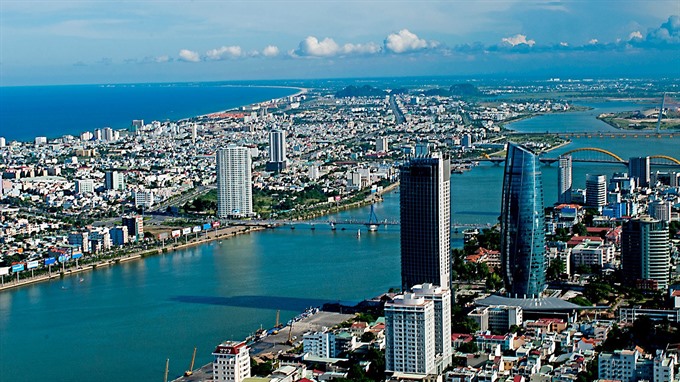City property market sees slowdown
The real estate market, particularly in Da Nang and the central region, has seen a slowdown after a “bubble” period.
 |
| The development of Da Nang’s real estate market established a range of property transaction floors and realtors. — Photo sggp.org.vn |
This was reported at a recent conference on the central region’s property market, themed “Reality and orientation for sustainable development,” held in Da Nang.
Experts at the event expressed concern over the situation as the property market in the central region had many high-end projects. They said besides slowdown, the difference between supply and demand had been increasing since the end of 2017.
According to them, this is a vital rule after a long “fever” in the central region’s property market.
Many investors had started choosing prestigious projects with adequate legal standards to avoid risks, said Nguyen Van Dinh, vice chairman of the Viet Nam Association of Realtors, adding that the market was faced with challenges.
He said the development of Da Nang’s real estate market established a range of property transaction floors and realtors.
This was consistent with the rule and was aimed at meeting the demand-supply connection of the market. However, if the broker and transaction floors did not comply with the law or adhere to the business rules of the market, it would inevitably appear in the virtual market, creating a “bubble” and posing a high risk to distributors, besides negatively impacting the real estate market and the economy, Đính said.
Meanwhile, Nguyen Van Nam, deputy director of the city’s Department of Construction, said the development speed of property projects in many localities nationwide had slowed down, although most of the real estate projects in Da Nang were progressing.
The city now has more than 50 real estate projects under construction, with over 50,000 apartments, penthouses and villas and many large investors, such as Vinacapital, Alphanam Luxury, SunGroup, Trung Nam, Hoa Binh, An Thinh and Vingroup.
Of this, the city has some 800 villas and 7,700 condotels. The market has seen a boom in a range of projects, from middle-income apartments to resorts, as well as diversified products such as condotel, officetel and shophouses.
Paying attention to the sustainable development of Da Nang’s real estate and that of the central region, Nguyen Thanh Ngoc, vice chairman of the Viet Nam Association of Corporate Directors, said the property market could be sustainable if it gained the trust of people.
Sharing the idea, Vo Tri Thanh, former deputy director of the Central Institute for Economic Management, said the real estate market of Da Nang city served diversified customers.
Which is why a property should be green to ensure sustainable development. It should especially pay attention to the demands of the middle class and the rich, he added.
“Da Nang should have typical green constructions to increase its property value. We should have a vision in planning. Da Nang’s real estate market has seen difficulties after a ‘hot’ growth period,” Thanh said.
Experts suggested that the State Bank of Viet Nam should tighten credit to the real estate sector.
However, this is unlikely to have a major impact on real estate developers with strong financial backing towards sustainable development, although it can bring some stability in the market.
The city’s Department of Construction said it had promulgated a document in April to correct property transaction and trading activities in the city. It said it would regularly update information about projects that were approved and were eligible for sale in future on its portal.
(Source: VNS)